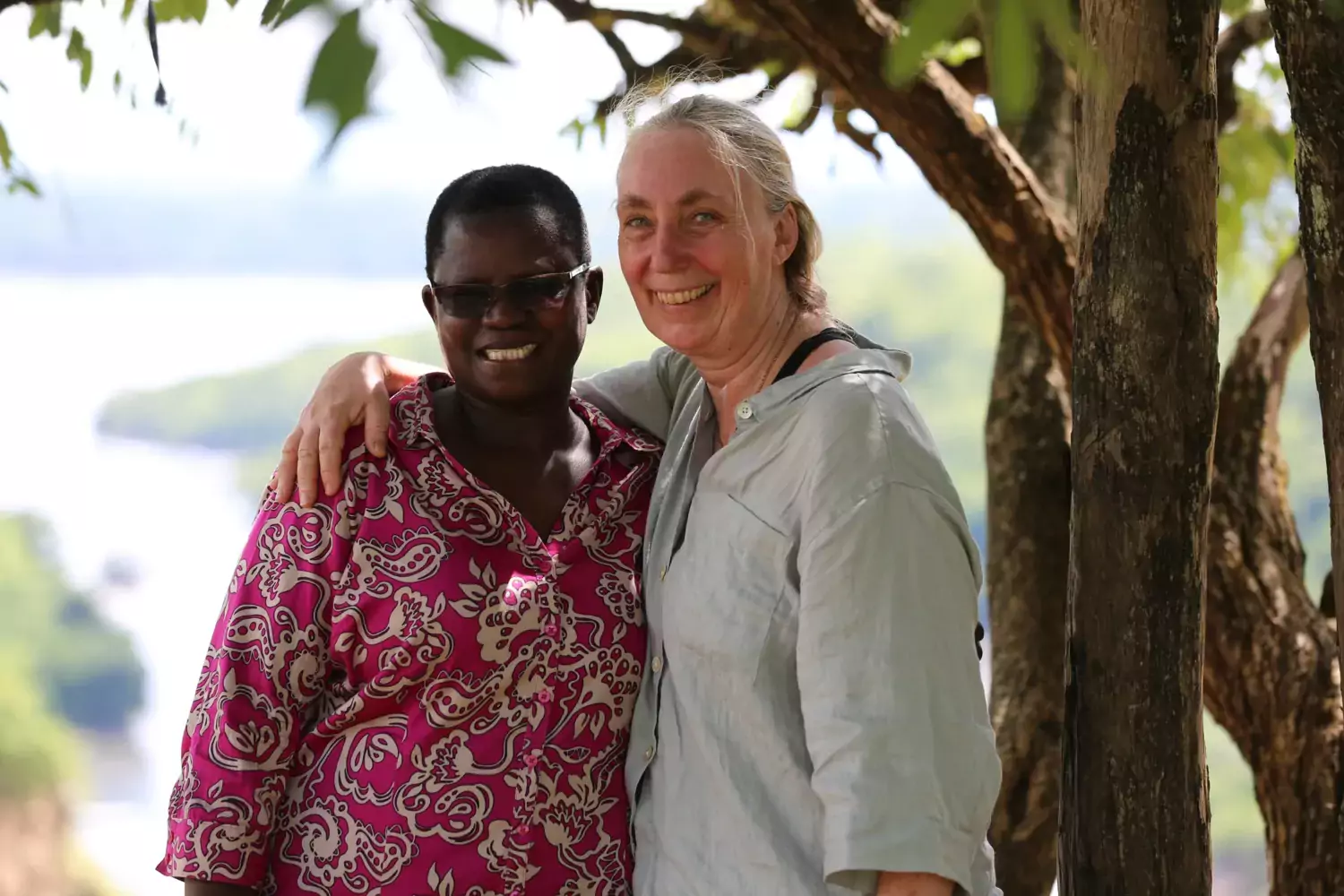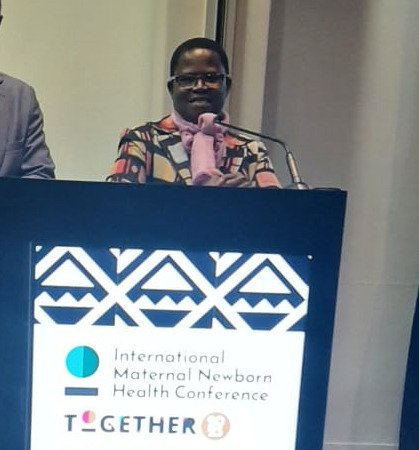Improved maternal health through KI leadership training

A training programme hosted by KI and partners in Kenya, Malawi, Ethiopia and Uganda has led to concrete changes at policy level and on the ground. “It is having a huge impact”, says Dr. Miriam C.A. Wagoro, Associate Professor at the University of Nairobi in Kenya and part of the coordinating committee.
The nine-month, part-time online training programme Capacity building programme for public health officials in maternal and child health is hosted by KI with funding from the Swedish Institute. It targets managers in maternal health care and midwives in leading positions. 24 participants, six from each country, attend webinars and interactive real-time workshops. Group work, study visits and supervised workshops in each country are also facilitated.
Highlights the role of the midwife
The programme highlights the role of the midwife in the multidisciplinary team around the mother and the baby. The fact that it targets leaders at policy level, as well as academia and clinicians, increases the impact and makes the results more sustainable. In Kenya, lessons learned from the programme have led to changes in the national health guidelines, according to Dr. Miriam C.A. Wagoro.
“The first year we had midwives from the Division of Reproductive Health who attended the programme. When the national health guidelines in Kenya were being revised, lessons learned from the course were utilised to ensure that dynamic birth positions and skin-to-skin care were included in the guidelines. ”, she says.

Episiotomies have been reduced
Since the introduction of the programme there have been positive changes in practice. Currently, the programme is being implemented at a second public health facility, according to Dr Miriam C.A. Wagoro. “Before the programme, the clinics only used one birth position – the lithotomy position*. Neither midwives nor mothers were using other options. With this project, different options are demonstrated, and the mothers are able to select the position they want. The knowledge has expanded, the skills have expanded. It is having a huge impact on the ground”, says Dr. Miriam C.A. Wagoro.
All the facilities where the programme has been implemented have reported a reduction in perineal tears and episiotomies**. The second stage of delivery has also been shortened. The programme has also increased the satisfaction among both clients and midwives. Interviews with participants show that it is successful. Dr. Miriam C.A. Wagoro reports that “The midwives are happy, the women are happy. Our reports show that the introduction of dynamic*** birth positions have facilitated the second stage of labour and reduced episiotomies. The working time of the midwives has also been reduced. The model is clearly cost-efficient".
Students who take clinical rotations in the facilities also show great interest in the programme and take the information back to their schools, according to Dr. Miriam C.A. Wagoro.
How do you feel when you see these changes?
“Definitely I feel very good. And I’m not the only one, the project participants are very happy. They want this project to be scaled up.”
What are the biggest challenges in the local context when it comes to implementing the programme?
“Some of the birth positions are very good, but require resources and equipment that we don't have. At times we do not have the adequate number of midwives on duty. Skin to skin-care can be difficult as we do not have beds on wheels. If mothers with complications have to use a wheelchair it is difficult to hold the baby skin-to-skin. We also need to improve the structure of the facilities so that we can allow partner support and privacy.”
In your opinion, what is needed to scale up this approach?
“In Kenya today there are few midwives and nurses in high-ranking positions. In most health departments as well as in the Ministry of Health you see only medical doctors. It is time to put midwives at policy formulation positions right at the top. We constitute over 50 percent of the healthcare workforce and provide over 80 percent of the maternal and child health services. We know what works on the ground.“
*Lithotomy position is when a woman is lying on her back with her feet raised, often placed in stirrups during delivery.
**Dynamic birth positions are squatting, sitting, standing, kneeling, being on hands-and-knees.
***Episiotomy is surgical cut made at the opening of the vagina during childbirth, to aid a difficult delivery and prevent rupture of tissues.
About Dr. Miriam C.A. Wagoro
Occupation: PhD, Associate Professor, research coordinator at the University of Nairobi, Kenya. Registered midwife and clinical nurse specialist. Former director of the School of Nursing Sciences and former chairman of the Department of Nursing Sciences at the University of Nairobi. Partner and member of the coordinating committee of MIDWIZE. Serves in several nurse leadership positions including the Global Expert Panel on Nursing Bioethics of the UNESCO Chair in Bioethics.
The best thing with MIDWIZE:
“The program is very practical and the positive health outcomes for clients are instant. The midwives and the mothers tell their positive experiences. Partner support is fantastic and the fathers feel appreciated.”
How important is the partnership with the local universities?
“The local partners provide contextualised cultural aspects that help understanding practises and health seeking behaviours, as a basis of behaviour change.”
About the programme
The “Capacity building programme for public health officials in maternal and child health (MIDWIZE)” is funded by the Swedish Institute through the SI Public Sector Innovation Programme, which targets universities and colleges. The training programme is carried out in cooperation with key public sector actors in low- and middle income countries with the aim of promoting innovation and sustainability in partnering countries.
The participants in the programme get training in leading a Quality Improvement (QI) project. The country teams coordinate a QI project to create the changes mentioned. Examples of QI projects are facilitating birth in dynamic birth positions and improving women’s decision-making, intrapartum support, perineal protection and skin-to-skin care. These components are evidence-based and can be used without expensive equipment and have the potential for positive impact on women's and newborn's health.
MIDWIZE is a a one-year online training programme which is delivered within the Centre of Excellence for Sustainable Health, collaboration between Karolinska Institutet and Makerere University in Uganda.
